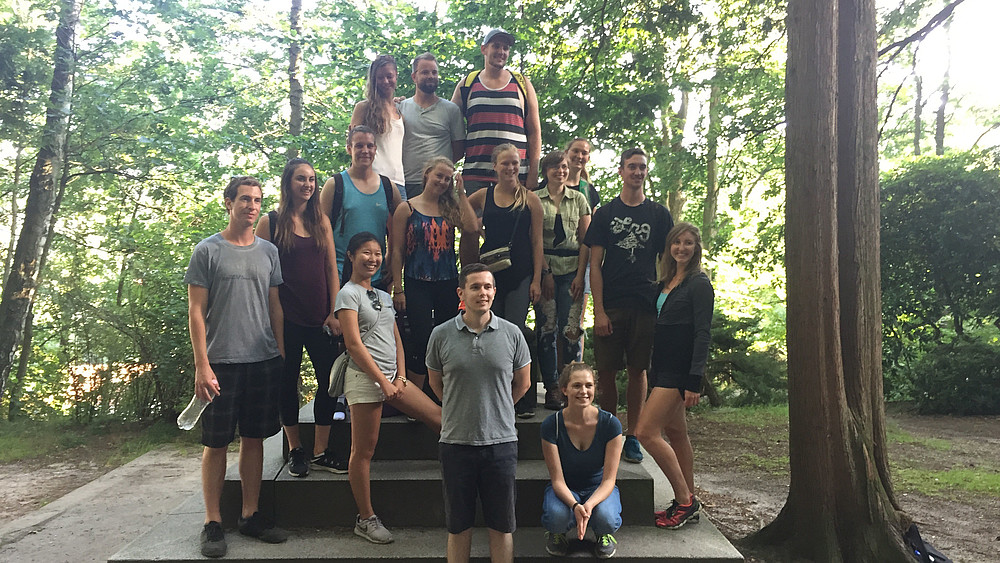From August 5 to 11, twelve Canadian students visited the HSZG together with their two supervisors.

Lethbridge is a small town in the south of the Canadian province of Alberta and is one of a number of Canadian universities that have been in contact with universities in Saxony as part of a consortium for several years. The consortium is coordinated from the German side by the Leonardo Office at TU Dresden. This office regularly sends representatives from the Saxon member universities to Canada to maintain the partnerships. Last year, Ms. Kunze, a member of staff from our university, was able to travel to Canada. The main aim was to maintain existing partnerships and look for new opportunities for cooperation. The University of Lethbridge in particular gave Ms. Kunze a very warm welcome. She was able to see for herself the excellent study conditions and the versatile campus facilities. It quickly became clear at the time that the visit should be reciprocated by the Canadian side.
In spring 2017, it was clear that a group of 14 people would visit us in August 2017. After an intensive preparation phase, the trip soon took shape and so, financed in part by DAAD and the participants' own funds, twelve Canadian students and their two supervisors were welcomed to the HSZG from August 5 to 11. Under the leadership of Ms Kunze, an extensive and varied program had been organized in advance: From a welcome party in the Dezi-Bar on the evening of arrival, guided tours of Fit GmbH and Herrnhuter Sterne GmbH, a visit to the Fraunhofer Institute, a boat trip on the Neisse, guided tours of Zittau and Görlitz and a tour of the Zittau Mountains with a fabulous and historically highly interesting visit to Mount Oybin, everything was included. As some HSZG students spontaneously volunteered as "buddies" after the visit was announced, the group was a colorful mix, which was obviously good for everyone.
The Canadian students' trip was also intended to advance their studies. They therefore took part in coursework in one of the new seminar rooms in House Z I on two evenings during their visit, under the guidance of their tutor, and were subsequently impressed by the modern facilities at our university. During the guided tours of our two campuses, we were also able to score points with our recently renovated "showcase" buildings, including laboratory and seminar room facilities. Not only did the advantages of the region generate enthusiasm, but the many advantages of a smaller university were also expressed.
As a result of the successful visit, arrangements will soon be made between Ms. Kunze (DSI) and the Studentenwerk to discuss further group exchanges and the possibility of a return visit in the coming years, including funding opportunities via the Studentenwerk Dresden.
Last but not least, it should be noted that many people always contribute to the success of visit programs of this kind. We would therefore like to take this opportunity to express our thanks:
Our Canadian guests returned home with a lot of new experiences and, we hope, only good impressions.
Further information can be found at the Division of Studies and International Affairs and at the International Office.